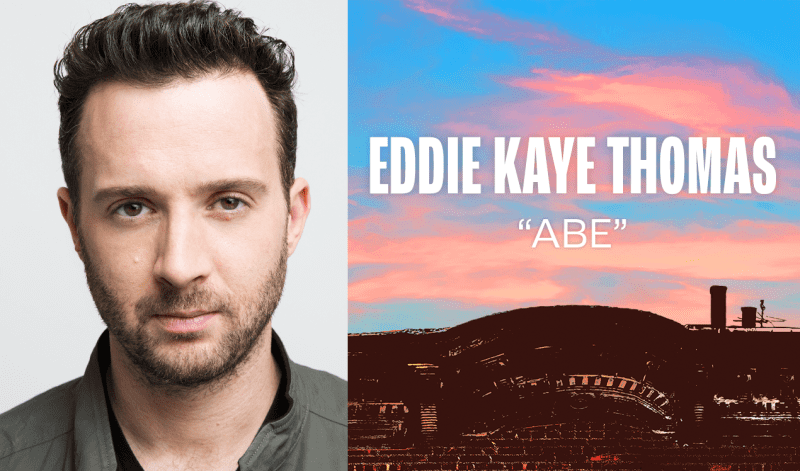Teaching artist Leah Reddy spoke with actor Eddie Kaye Thomas about his work in The Wanderers.
Leah Reddy: What is your theatre origin story?
Eddie Kaye Thomas: My theatre origin story is being seven years old and needing an afterschool activity because I lived in Staten Island and my parents worked in Manhattan. There was a theatre group that offered free after-school programs called New York City Kids on Stage. I would go there after second grade, maybe first grade, and I found my home. I really enjoyed it.
In hindsight, my behavior at school and the rest of my life changed a lot once I was doing theatre stuff. I used to have lots of temper tantrums. I don't know if I was a bad kid, but I wasn't the best kid. Once I started doing theatre the rest of my life seemed a little nicer. Eventually I got an agent and started doing more and more. And I was lucky enough to grow up in New York, so I had access to Off-Broadway and Off-Off-Broadway and here I am almost 40 years later, still doing it.
LR: As you grew as a young person and as an actor, were there any important teachers, educational experiences, or work experiences that helped shape you as an artist?
EKT: I think all classes are helpful, even the ones that weren't the best for me, because there is no science to doing this. It's not algebra, there's no exact formula to get it done. So sometimes you'll have a teacher that really speaks to you and recommends a process or a method that really helps and it gets you excited and you feel like the work is easier and more joyful. Then sometimes you find someone that doesn't really do that. But what I've learned is it's kind of helpful to go, "Oh, that's not for me. I don't work like that."
I studied at Lee Strasberg when I was little and I was also doing plays a lot as a kid. And the more you do it, the more experience you have. Nothing substitutes experience. You can't pretend to have experience. And gosh, as an actor, one of the most important things you can learn how to do is handle a lot of rejection, and the only way to know that about yourself is to do it. For some people it's not worth it. "I don't need to be told that I'm not the one 8,000 times." But when you're told that 8,000 times and you still want to do it, then you're probably doing what's best for yourself.
LR: Your career has gone back and forth from theatre to film and some television. What draws you back to the theatre?
EKT: It's fun. It's just a joyful way to spend the day. We're in rehearsals for The Wanderers right now. We're literally playing make believe every day. It brings out our inner child in a playful way, which is great. We also touch on things in our personal lives through the work that we don't get to touch on outside of the rehearsal room. We get to express ourselves in ways we don't get to in everyday life. It can be a terrifying thing to do, which makes it very exciting to do stage work. And you also just get time to get to know the material that you don't get in TV and film. This is an 85 or 90-page script that we're going to rehearse for a month, then we're going to preview for three weeks, and then we're going to be in performance for two months.
Even with all that time, I'm not going to “figure it out.” We'll still be discovering. When you do a scene in a movie or a TV show, you rehearse it a little bit in the morning and then you shoot it an hour or two later. Theatre's a great place to really get to know the play that you're working on and yourself as an actor. In the theatre, you get an opportunity to fail and try again. In TV and film, when something doesn't go as well as it could have, you kind of got to hope that the editor figures it out or the director works around it. But theatre is a place for actors to really get to flex their muscles.
LR: What drew you to The Wanderers specifically? Why this play? Why now?
EKT: The Wanderers is beautiful, beautiful writing. This play will live on for a long, long time after we do it. It's going to be done in a lot of theatre companies and a lot of acting classes. Wild horses couldn't have kept me away from this play. It's just so damn well written, as evidenced by the fact that we can't stop peeling this onion, there's always something else. It's a very modern story, dealing with how the internet can have profound effects on relationships. It deals with success and failure in a way that really speaks to me. He's a middle-aged guy. It's a very real play. A good play is very personal and honest and at the same time appeals to a very broad group of people. I think that does this, that Anna wrote a very personal piece that will speak to a lot of people.
LR: It's also very much a New York story. And I'm curious if, as a native New Yorker, you relate to it in that way.
EKT: The Hasidic community is ever present in New York and I think anyone and everyone who has seen and come across the Hasidic community wants to know more about that. Especially the fact that they exist mainly in Williamsburg, in this most modern part of the city, there is a community of people that does not seem to fit in with the rest of it. I'm learning a lot about it being in this play.
LR: What advice do you have for a young actor or someone who is perhaps new to the field?
EKT: If you're interested in acting, find classes that speak to you and find the joy in it. It should be a lot of fun. It can be a very painful, challenging career, but it can also be as rewarding as anything else. If you love it, there's always a place to go to act and you can find it and find other people who want to share the experience with you.
LR: Is there anything that I haven't asked you that you want to talk about in relation to this play?
EKT: I really believe in acting classes and learning about process and technique. This is certainly a play where I get to try all the things that I've learned. What I've learned working on this play is that doing the work — whether it's creating backstory or researching what I'm talking about, getting specific with everything — makes doing the play feel a lot easier. My character has children and my character writes books. So I start imagining what these children would be like and get specific about them. I start imagining what my books would be about and what the process of writing them was like. All that stuff is stuff that I learned in classes. So going back to your question about advice for young actors, getting specific and learning about your character makes the work so much easier and so much more fun. It's also fun to do the work because you're just using your imagination and getting specific. So the work works, if you will.



